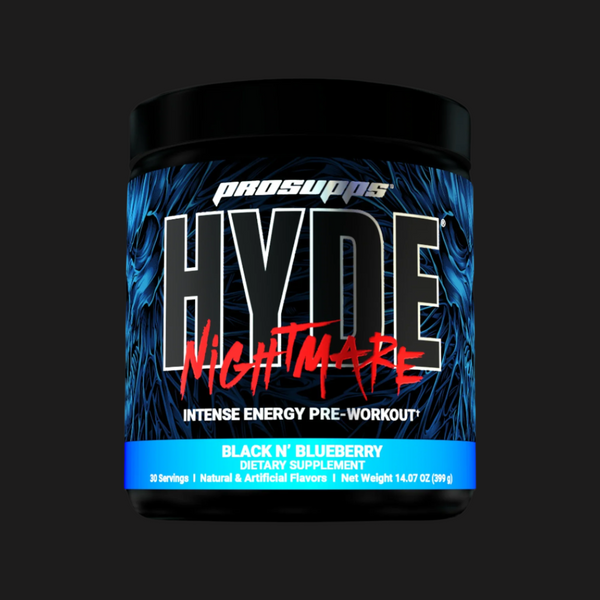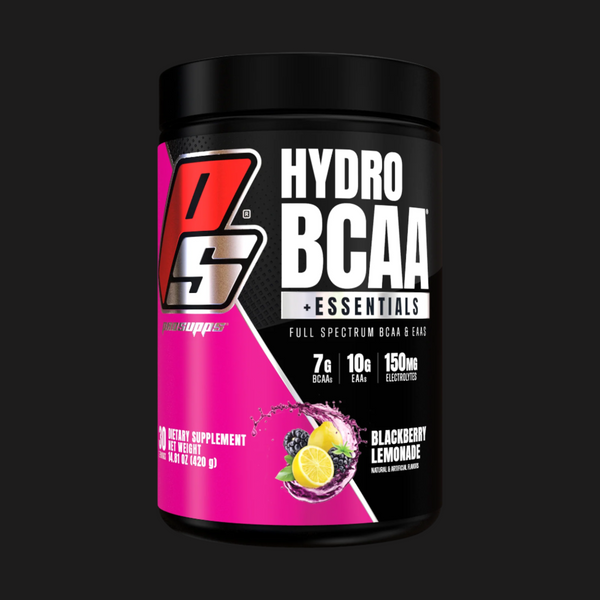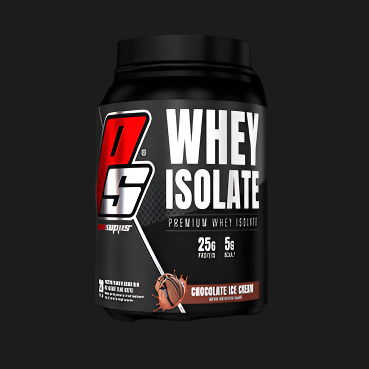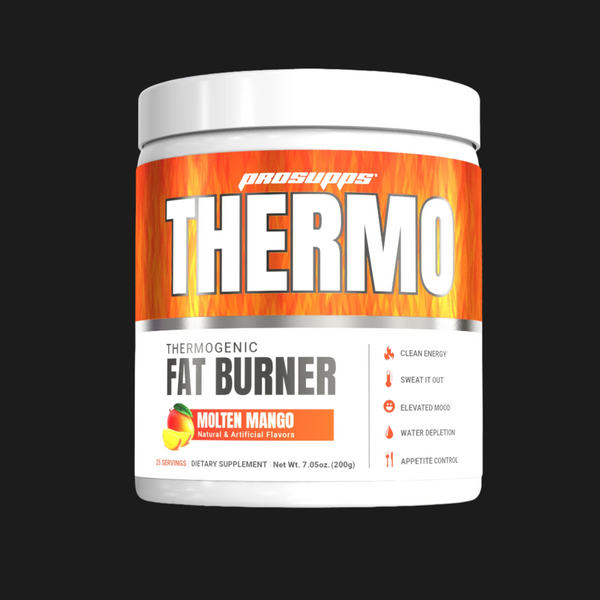
A Guide to Common Pre-Workout Ingredients and Their Dosages
 Written by Guy Gustafson
Written by Guy Gustafson May 19, 2021
Just like daily vitamins are helpful in maintaining your health, pre-workouts are supplements designed to elevate your fitness performance, boost your energy level, and amplify your gains from your workouts.
Although pre-workout supplements are designed to get you into an optimal physical and mental state to work out more efficiently, over-indulging in supplements will do you more harm than good. Moderation and balance are key to maximizing the full extent of pre-workout benefits.
After all, pre-workout supplements consist of an array of naturally-occurring ingredients. However, just like with vitamins, over-consuming these ingredients can have negative consequences on your health. Therefore, your intake should be monitored and set according to your body’s needs.
How should the intake of pre-workout be regulated? What are the recommended guidelines to control consumption? Read on to find out the answers to these questions.
What Is the Right Amount of Pre-Workout to Take?
If you have never taken pre-workout before, trying to understand the appropriate quantity can be daunting. It is important that whichever pre-workout you choose, the blend of ingredients aligns with your fitness goals.
The effects of certain stimulants can differ from person to person. Therefore, it's important to do your research and consult your healthcare provider to ensure you have a proper understanding of your physical health.
Start small. When you first start your pre-workout regiment, consume half of the recommended dosage for a few days and monitor yourself for any negative side effects. If your experience is positive, bring yourself up to the recommended dosage level.
It comes down to being sensitive and attuned to your body.
Dosages found on package labels are often guidelines and not necessarily right for everyone. If you feel like you’re not experiencing the full effects of the pre-workout, you may choose to increase the dosage (with your healthcare provider's sign off, of course). Conversely, if the pre-workout is causing adverse effects, you may want to cut back on the dosage or refrain from consumption entirely.
You may also be better off switching supplements entirely to find a pre-workout that works better for you. The onus is on you to be sensitive to your own wellbeing.
The Main Ingredients in Pre-Workouts
Let's take a look at the standard ingredients commonly found in pre-workout supplements. Generally, pre-workouts contain caffeine, creatine, beta-alanine, and citrulline malate.
Caffeine
First up on the roster: caffeine. Whether or not your pre-workout contains caffeine, chances are you're familiar with caffeine from your daily cup of coffee or cheat day chocolate bar.
With a universal reputation as an energy booster, caffeine is a go-to when you need that extra kick to pull an all-nighter or that extra pep in your step to face an early morning. Caffeine has become a staple in many people's daily routines.
But caffeine is much more than an energy booster. Consuming caffeine prior to a workout helps to heighten mental acuity, allowing you to be more mentally active and alert during your exercise.
The stimulation that caffeine provides to your central nervous system and cardiovascular system is also responsible for getting your blood pumping, which strengthens and improves the contraction of muscles.
To really increase the effects of caffeine, you may choose to pair it with taurine, an amino acid compound that specializes in increasing fitness performance and lean mass accumulation through cell volumisation.
As the name suggests, this process causes cells to expand from water saturation. The larger cells create the ideal intracellular conditions for muscle hypertrophy. Thus, when caffeine is used in conjunction with taurine, this formidable combo has been demonstrated to improve an athlete’s mental alertness and reflexes.
Due to the potency of caffeine, experts generally recommend an intake of 100-200mg of caffeine per day to stay in the safe range. Try not to exceed 400mg per day.
Creatine
Creatine is a popular ingredient for those keen on building muscle mass. As an amino acid, it is very effective at providing the necessary support to your muscles during workouts, helping to increase muscle size, strength and performance. The benefits of creatine are amplified when used together with branched-chain amino acids (BCAAs).
While creatine works to build muscles up, BCAAs ensure muscles don't get worn down. They focus on hindering the excessive wear and tear of muscles. Hence together, both these amino acid compounds work in unison during the muscle hypertrophy process — BCAAs behaving as the protectant and creatine as the engineer.
In general, experts recommend starting off with roughly 5gs of creatine per day for those adhering to a structured six week workout plan. This is to ensure optimal muscle-building without overdoing it.
Beta-Alanine
Beta-alanine is another amino acid that promotes muscle endurance and delays the onset of muscular fatigue. Overall, beta-alanine promises to boost your fitness performance output.
Although beta-alanine doesn’t directly grow muscle mass, it is involved with encouraging more production of nitric oxides, which are related to muscle mass.
Nitric oxides are vasodilators; they expand the lumen of blood vessels and increase overall blood flow. With higher rates of blood circulation throughout the body, oxygenated blood can flow to target muscle groups more efficiently to aid in aerobic respiration. Thus, on top of reducing fatigue, beta-alanine also promotes muscle mass in an indirect way.
However, beta-alanine does have its drawbacks. This amino acid nutrient has been associated with side effects of itchiness or tingling sensations running throughout the body.
To avoid negative side effects, we recommend starting at a lower dosage, between 800mg and 2000mg. If you aren't feeling any side effects, you may choose to increase your dose from there.
Citrulline Malate
Citrulline malate helps to promote nitric oxide production in the body. As mentioned, nitric oxides are natural vasodilators that help to improve the efficacy and efficiency of blood circulation.
Additionally, citrulline malate specializes in replenishing phospho-creatine (PCr) molecules in the body which contain high-energy phosphates. These phosphates go on to maintain and recycle adenosine triphosphate (ATP) for muscular contractions. Thanks to the increased concentrations of nitric oxides and PCr, citrulline malate helps to delay fatigue and alleviate muscle soreness post-workout.
Overall, experts recommend a dosage of 2-6gs of citrulline malate.
Conclusion
If you are new to pre-workouts, we recommend you consume them in a slow and gradual manner, until the effects on your body are clear. Stay tuned to your body, follow usage recommendations on the label and check in with your healthcare provider.
Our range of HYDE pre-workout supplements have been scientifically researched and blended in unique proportions to ensure whatever your fitness goal, we have a product that can help give you the boost you need to reach it. Check out the range to find what you need to kick start your fitness journey.
GET LEAN
 Why You're Struggling
Can't Lean Out? Here's Why You're Struggling
Why You're Struggling
Can't Lean Out? Here's Why You're Struggling
We all know the feeling. You’ve been working hard in the gym, sticking to your diet and getting in your...
 Weight Loss
Choosing the Best Protein Powder for Weight Loss
Weight Loss
Choosing the Best Protein Powder for Weight Loss
Struggling to shed body fat and lean out? You might need to focus more on your nutrition, specifically your protein...
 Weight Loss
9 Ways to Speed Up Your Weight Loss and Burn More Fat
Weight Loss
9 Ways to Speed Up Your Weight Loss and Burn More Fat
Weight loss is a major goal for more than 40 percent of Americans. Is it something you’re working toward, too?
 Workout Routine
10 Tips for Building a Sustainable Workout Routine
Workout Routine
10 Tips for Building a Sustainable Workout Routine
Starting a fitness journey is an exciting time, but maintaining a sustainable workout routine can be challenging. From setting realistic...



























